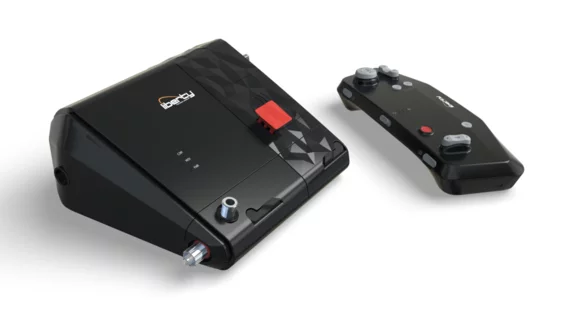Microbot Medical acquires Nitiloop’s assets, including FDA-cleared microcatheters
Microbot Medical, a Massachusetts-based medical device company focused using microrobotic technology to perform endovascular procedures, announced that it has acquired Nitiloop’s assets, including the NovaCross family of microcatheters.
Financial terms of the acquisition have not been announced at this time.
The NovaCross family of microcatheters includes multiple devices designed to assist with the placement of both conventional and steerable guidewires. The NovaCross CTO microcatheter, for instance, gained clearance from the U.S. Food and Drug Administration back in April 2020 for the treatment of chronic total occlusions prior to percutaneous transluminal coronary angioplasty or a stent intervention.
According to Microbot Medical, acquiring the NovaCross devices represented an opportunity to make its own Liberty Robotic System, a disposable endovascular robotics system for the cath lab, even more effective.
“The addition of Nitiloop’s innovative, FDA cleared microcatheter family complements the unique robotic ecosystem we are establishing for endovascular procedures,” Harel Gadot, Microbot Medical’s chairman, president and CEO, said in a prepared statement. “This is expected to further assist us in executing our strategic plan of becoming a complete procedure-based company, allowing Microbot Medical to be competitive across the entire endovascular robotic space. We believe the NovaCross family of products, once integrated into our existing technology platforms with the Liberty Robotic System and our future One & Done technology, will potentially standardize endovascular procedures globally and may finally allow accessibility to robotic technology for the millions that are in dire need of life-saving treatment.”
As the company works to gain key approvals for its Liberty Robotic System, Microbot Medical has also been busy expanding its scientific advisory board. David C. Madoff, MD, a radiology professor at Yale School of Medicine, is the most recent addition.
“Dr. Madoff has a proven track record of best-in-class clinical data collection and publications,” Gadot said in a separate statement. “As such, we expect that his experience and contribution will be invaluable as we enter the clinical phases for the Liberty Robotic System to progress along our regulatory paths.”
Vincent Vidal, MD, PhD, and Ripal T. Gandhi, MD, also joined the company’s scientific advisory board in recent weeks.

